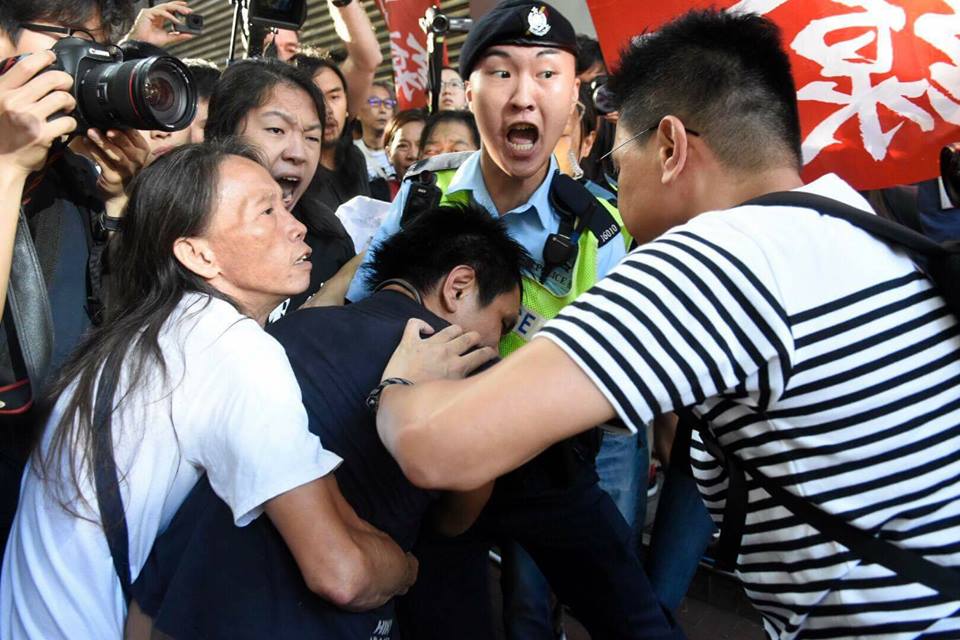A Hong Kong court ruled against democracy activist Joshua Wong on Wednesday, saying that there was a “real need” for police officers to handcuff him at a protest, despite not putting him under arrest. Wong has called upon the courts to clarify the law governing the use of handcuffs.
Deputy Adjudicator Simon Ho said he accepted the police officers’ testimony that Wong needed to be handcuffed to ensure his safety and the safety of others. Ho dismissed Wong’s claim and ordered him to pay HK$8,062 in legal fees.

Wong took part in a 2017 protest during the 20th anniversary of Hong Kong’s handover to China, which coincided with a visit by Chinese President Xi Jinping. During a confrontation between pro-democracy and pro-Beijing protesters near Wan Chai, Wong was taken away by police.
Wong later sued the Commissioner of Police for assault and false imprisonment, on the grounds that it was unlawful for officers to handcuff him without first placing him under arrest. He sought compensation of HK$45,000 and the case was heard by the Small Claims Tribunal last month.
Wong said after the ruling that he planned to appeal to the High Court.

“The courts should clarify the law – do the police have legal basis and authority to put citizens in handcuffs in a non-arrest situation?” he said.
‘Reasonable force’
Ho said in his ruling that Wong struggled and flailed his limbs when he was taken to the police van, which made it difficult for officers to restrain him. Because Wong’s actions caused danger to himself and others, it was lawful for the officers to put him in handcuffs, Ho said.
Ho added that Wong’s actions constituted a breach of peace, and under such circumstances it was lawful for the police to detain him without notification.

Wong said the deputy adjudicator fully adopted the version of events offered by the police, without taking his testimony into account.
“As to the tribunal accepting that the protester [myself] had self-destructive tendencies and actions, I felt it was unimaginable,” Wong said.
He also questioned whether the tribunal had jurisdiction to find that he committed a breach of peace.
